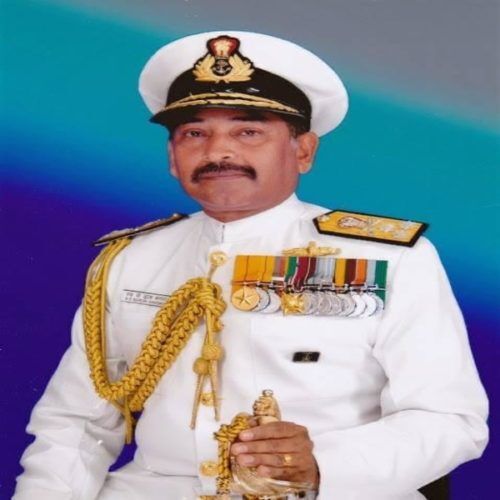Indian Navy veteran details 1971 Operation Trident, Indo-Pakistani War
At the port of Karachi, I received contact by radar and my commander ordered me to fire. I went to the range and we attacked with the first missile. It hit the PNS Khyber, a Pakistani destroyer ship, which we aimed for. I received orders on the radar approving a second strike and with that, we broke the ship in two.
- 2 years ago
September 30, 2022

KARACHI, Pakistan ꟷ On December 3, 1971, I took orders from the Indian Navy to sail out of Mumbai harbor. Little did I know this trip would evolve into Operation Trident – an audacious mission by the Indian Navy. We sailed south of the Saurashtra and then to Okha.
The resulting 14-day long Indo-Pakistani War that took place 50 years ago shaped the course of India’s history. It altered the geography of the south Asian subcontinent and formed a new nation called Bangladesh.
The events of Operation Trident remain fresh in my memory a half century later. They called my team the Killer Squadron. It became the only action I saw as a young, new recruit in the Navy and it changed my outlook and attitude about service.
The deadly operation that changed the course of India-Pakistan history
In the dark hours of the night, after Pakistan launched a pre-emptive strike on seven Indian airfields, we embarked on a moral war to liberate people from East Pakistan. The secret mission remained unknown to everyone.
On December 2, my ship remained anchored in Diu for the day as we awaited orders. When the Prime Minister Indira Gandhi declared war, we prepared to execute Operation Trident. On December 4, five officers with their boats and crew assembled in Dwarka. We would execute the mission that night.
Along with the other officers, we attended the combined briefing and received instructions to swiftly break radio signals. Around sunset, our ships departed in aero head formations and set out toward Karachi port. We anticipated arriving by 10:00 p.m. and completing attacks at midnight. From the moment we left until the attack, we refrained from using radar or communicating in any way.
At 10:00 p.m. our boats stood 70 miles from Karachi. I commanded the Nirghat from Okha. At the port of Karachi, I received contact by radar and my commander ordered me to fire. I went to the range and we attacked with the first missile. It hit the PNS Khyber, a Pakistani destroyer ship, which we aimed for. I received orders on the radar approving a second strike and with that, we broke the ship in two.
Throughout the operation, we destroyed four Pakistani vessels including PNS Shah Jahan, a c–class destroyer, the Kemari oil storage tank, and PNS Muhafiz, an adjutant-class minesweeper. If I had not attacked the first ship, they would have attacked us and would sink with one hit. So, we hit first, hit hard, and kept hitting. That is the moto of officers in the Indian Armed Forces.
One night to decide our fate, to survive or die
At the time of Operation Trident, the Pakistan Navy issued a warning stopping merchant ships from entering the zone. Only their navy ships remained. So, I continued the attacks and our missiles hit their targets. When our commanders ordered us to withdraw, we headed back, close to the Indian ports. It remained night. Only when we returned to the Saurashtra port did we learn through radio message interceptors and Pakistani radio broadcasts that we sunk the PNS Khibar.
I believe we won the 1971 war because of the dedication, motivation, and professionalism of our crews. It began before the mission even started. One day, we carried out trials in preparation for Operation Trident. One of the barrels of a forward gun caught fire and burned due to faulty ammunition. The Russian team supporting us could not fix it, so our crew got to work. In 24 hours, they had the gun working again. Their rare dedication made a lasting impression on me, even though I was only five years their senior.
The night before our mission began, the Chief of Naval Staff, who was my boss during our training in the Soviet Union, came to the jetty late at night and sent for me. He handed me my orders and instructed me not to open them until I had the ship well out to sea. He held my hand and asked for my belongings. I said my things resided in the command mess. He talked about my parents. I knew the orders in my hand would be dangerous.
The moment proved very emotional for him, not knowing whether our crew would be successful. I prepared for the fact I may never come back. For me, my duty remained more important than my life.
Training in U.S.S.R. prepares crew for new ships and tactics
Operation Trident boasted many challenges. As officers, we dealt with new boats and new tactics used for the first time. The ships came from Erstwhile, of the former U.S.S.R. At training, they deposited me in a secret place during the frigid cold of winter. No means of entertainment existed there.
We remained dependent on the boats to go anywhere on weekends in the Russian territory. Officers and sailors bonded, as we had no communication with family. I taught the new tactics, and we conducted so many drills, we had no doubt. We just waited for the war to happen; to get it done with. The war had loomed for months since April 1971. We felt ready.
Operation Trident continues to characterize the Indian Navy today. It gives cause for the Navy Day celebration on December 4 every year. At the age of 86, I still celebrate our victory, though I do not consider myself a hero. The country awarded me the Param Veer Sena Medal, the highest gallantry award from the Indian Armed Forces. After our mission I became the Executive Officer of INS Veer, the ship I commanded during the operation.
I would have gladly died for my country that day
I just did my duty. It’s all I knew. That night proved the most adventurous of my life, full of uncertainties. We faced the vulnerability of being attacked by Pakistani marine aircrafts, which is why did not use radar or communication. We maintained absolute secrecy which allowed our surprise attack. No one person from our crews came in contact with anyone else.
We faced the challenge of sustaining boats on the open sea, sailing at high speeds for long durations of time. We also faced being attacked ourselves, as we had no real time intelligence in those days. Had they tracked us and attacked first, we would not be here to tell the story.
After that, they called us the Killer Squadron. At home in Mumbai, taxi drivers stopped their vehicles for us. People on the streets saluted us. My family was in shock that at just 23 years of age, unmarried, and somewhat new to the service, I did my duty. I feel proud to have served my nation that day. If I had been killed, I would be a proud martyr. I would have taken my sacrifice for India gladly to the grave.


